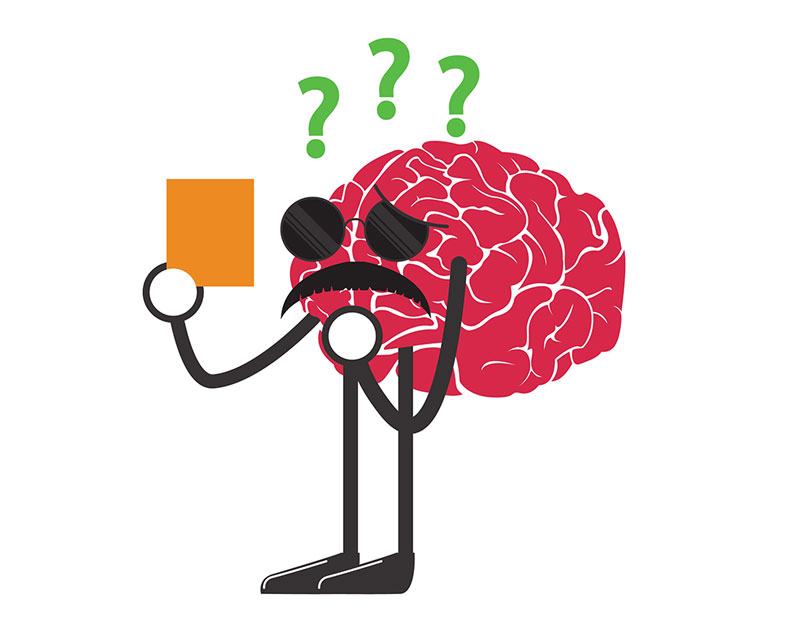The Progression of Alzheimer’s Disease and Other Dementias
Everyone does experience their own dementia but the condition progresses in a series of stages. In this article, there will be fact sheet that outlines the characteristics of the early, middle and late stages of Alzheimer’s disease and briefly looks at how other forms of dementia progress.
Everyone’s experience will be different while it can be helpful for planning ahead to have some knowledge about what will happen along the way of a person’s dementia. It is significant to put importance on how to live well with dementia and how to live with their needs than to take focus on what stage that they are already in.
The Progressive Condition of Dementia
Here are some types of dementia that are progressive: Alzheimer’s disease, vascular dementia, dementia with Lewy bodies and frontotemporal dementia. The structure and chemistry of the brain become increasingly damaged eventually. There will be a gradual decline for a person’s ability to remember, understand, reason and communicate. As the condition worsens, the person who is affected will need more support with the daily tasks. The behaviour and mood will change along the way.
Medical specialists take advantage of scales to measure these changes. There will be a random assessment of a person’s mental ability, daily living skills, behaviours, overall functioning or quality of life. These scales were specifically developed for Alzheimer’s disease and are more applicable than the other types of dementia. The capabilities and needs should also be considered together with the assessment of the extent of someone’s dementia with the scales.
There are three stages of dementia – early, middle and late, this can come in handy in terms of understanding the changes that happens over time. Although, it is crucial to put in mind these view of dementia can only go as far as a coarse guide on the overview of the illness. Here are the reasons why:
- The symptoms may be visible earlier or later than is known in the guide
- The stages may run over – the person may be reliable over doing a task or might need help with another activity
- There will be symptoms that may appear and then vanish or there will be a symptom that might worsen over time
There are factors to be considered when a person experiences dementia. Here are some of the regular activities that might be affected like physical make-up, pre-existing conditions, the emotional resilience, the medications being taken and the support around them.
What happens before dementia?
It is proven that before dementia is developed any of its symptoms, the disease may have been damaging the brain for some time. Researchers are now focused with the ‘pre-symptomatic’ period and were able to establish a test to the brain chemistry, its function and its structure. It is believed that medication were produced to delay or stop the diseases that causes dementia would work in this early phase, before the disease is full blown.
Gradually, the changes in the brain will signify some subtle symptoms but which is not considered to be dementia. These subtle symptoms will be in terms of memory, reasoning, planning or judgment may cause difficulties with more demanding tasks but it will not happen regularly. If the person is in this stage, they may be diagnosed with Mild Cognitive Impairment (MCI). About 10-15 percent of people with this diagnosis will develop dementia.
Rate of progression
The speed of dementia worsens is different. There are different types of dementias mainly for example Alzheimer’s disease which seems to have the slowest progression on average, but differs in case to case basis.
A wide range of factors impact how someone’s progress on dementia will be. The age is a great factor to consider because people that are of age 65 have faster progression when developing the symptoms. The genes also play a big role and the physical health as well. The faster deterioration most likely to happen to those that have uncontrolled heart conditions or diabetes, those who have several strokes or those who had infections.
The good side about it is that there were evidences that keeping active and involved can help a person with dementia retain abilities for longer. Regular physical exercise goes to show that it slows the rate of decline. Here are some of the lists of exercises and physical activity: https://www.alzheimers.org.uk/site/scripts/documents_info.php?documentID=1764.
Basically, some of these affect the processes of the disease in the brain while some others just do not. Those who know someone looking out for a person with dementia should know that they should be active – physically, mentally and socially. Aside from that, they should eat healthy, get more snoozes, take medications and not smoke or drink too much alcohol. There should be a regular check-ups and vaccinations and to keep a careful eye on underlying health conditions. A sudden change in the person’s abilities or behaviour could indicate a physical or psychological health problem or an infection.
Alzheimer’s disease
Alzheimer’s is the most common type and most researched upon dementia. There are three stages of the progress which the common dementia can be compared with Alzheimer’s disease.
Each type of dementia has its own early symptoms because different areas of the brain might be affected first. When the damage spreads out in the brain, the symptoms become more similar. In the later stage, the person will need more level of care whatever type of dementia.
Early Stage / Mild Stage
Alzheimer’s disease usually begins with a subtle difference in the person’s abilities or behaviour. At first, these signs can be misguided leading to stress or just change in behaviour or it could be pointed out as a process of ageing. When the disease gets worse then and only then it will be attributed as signs of dementia.
Loss of memory of past events is an early common symptom. The person may have difficulty remembering things that happened and might also have difficulty in learning new things. A person with Alzheimer’s might have:
- Forget things around the house
- Forget recent events and conversations
- Forget to find the appropriate terms to be used in a conversation or lose your way in the conversation
- Having a hard time at getting new ideas and does not want to try out new things
- Gets confused with the day and date
- Makes poor judgment or gets it find harder to plan or make decisions
- Have problems navigating distance or looking at things in three dimensions
- Lose interest in other people or activities
If you are taking care of someone with Alzheimer’s disease, there’s a lot of things that you can do especially in the early stages to help them manage their independence. You might want to do things for them but they would feel more sense of self-worth and independence if they can do it on their own like the way they used to. It is important that the focus should be on what the person can do than what they cannot and also, looking for things that can be achieved in a different way.
Here is the information in this link: https://www.alzheimers.org.uk/site/scripts/documents_info.php?documentID=115.
It is normal if the person feels anxiety, irritability and depression. They will feel disappointment to themselves when they cannot perform a certain task and might need some encouragement. If this happens, moral support is needed like talking to them and give them as much emotional support. More information in this link: https://www.alzheimers.org.uk/site/scripts/documents_info.php?documentID=139.
Middle Stage / Moderate Stage
When the Alzheimer’s disease progresses, the symptoms become more remarkable and the person will need more support to help them manage their daily tasks. They need reminders or support in helping them to eat, wash, dress and use the toilet. They are likely to become increasingly forgetful and may sometimes repeat the same questions and sentence over and over. They will also seem to fail to recognise people or get confused with others. In this stage, there might be a risk when something happens through forgetfulness by not lighting the gas on the cooker or forgetting to take medication.
People at this stage may become upset, angry or aggressive because they get frustrated or because they misunderstand or they may lose their confidence and need a lot support or reassurance. Here are some of the symptoms:
- They get confused where they are or get lost somewhere or walking out
- Getting confused with time and getting up at night because they confuse night and day
- Behaving unusually like they are going outside in nightclothes, getting anxious and agitated and behaving in socially inappropriate ways
- Having delusions and experiencing difficulty with perception and having hallucinations
The change of behaviour starts from the m idle stage of dementia and becomes one of the most challenging aspects of dementia especially for those who take care of them. For more information, you can go to this links here:
https://www.alzheimers.org.uk/site/scripts/documents_info.php?documentID=159
https://www.alzheimers.org.uk/site/scripts/documents_info.php?documentID=96
https://www.alzheimers.org.uk/site/scripts/documents_info.php?documentID=152
https://www.alzheimers.org.uk/site/scripts/documents_info.php?documentID=1408
Late Stage/Severe Stage
In this stage, people with Alzheimer’s will require more help and eventually become totally dependent on others for nursing care. Memory loss will be very remarkable, the person with dementia will not be able to identify familiar objects, locations and even those who are close to them, although there might be some flashes of recognition.
Aside from that, the person may also become weaker. At first, they may start to shuffle or work unsteadily and later on, will spend more time in bed or wheelchair. Here are more symptoms for the later stage:
Having hard time eating and even, swallowing
Sudden weight loss, although some people eat too much and put on weight
Incontinence – losing control of the bladder and sometimes their bowels
Eventually losing their speech, they may be able to repeat a few words or cry out from time to time
The person may also become restless; sometimes they may search someone or something. They may become distressed or aggressive, especially if they can feel threatened. Sudden outbursts may happen when they are cared personal, usually because the person does not understand what is happening. Those who take care of the person should not try to take things personally as the person affected is not deliberately aggressive. It is good to put in mind that the person may experience pain and discomfort which they cannot express verbally. Painkillers can often help.
The person may seem to have little understanding of speech and may not recognize those that are around them, they will still be responding to affection and to being talked in a sweet and calm voice. They love the sweet smell, music and taking care of a pet.
Click here for more information:
https://www.alzheimers.org.uk/site/scripts/documents_info.php?documentID=133






Leave A Comment